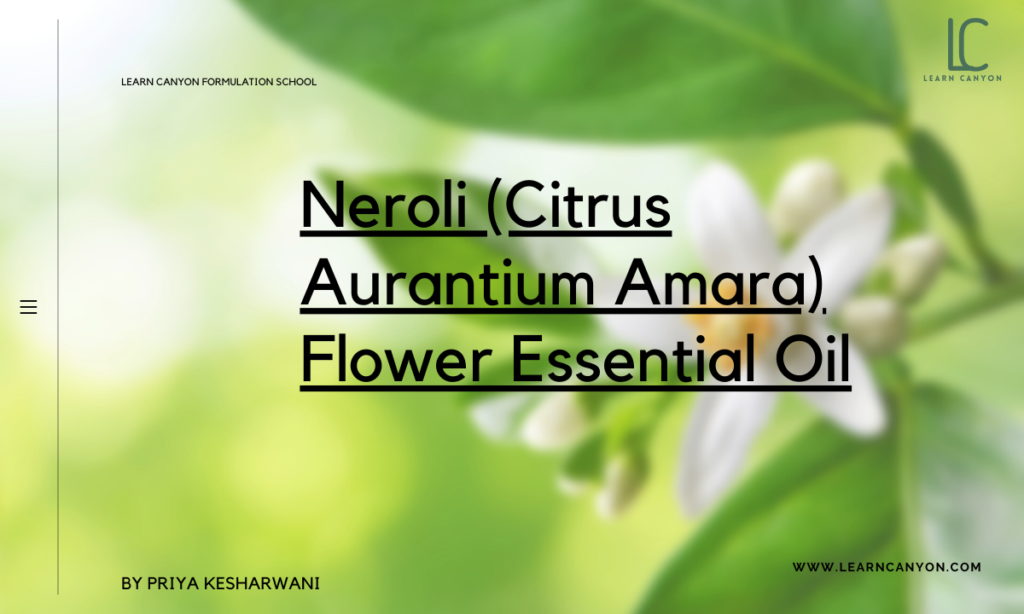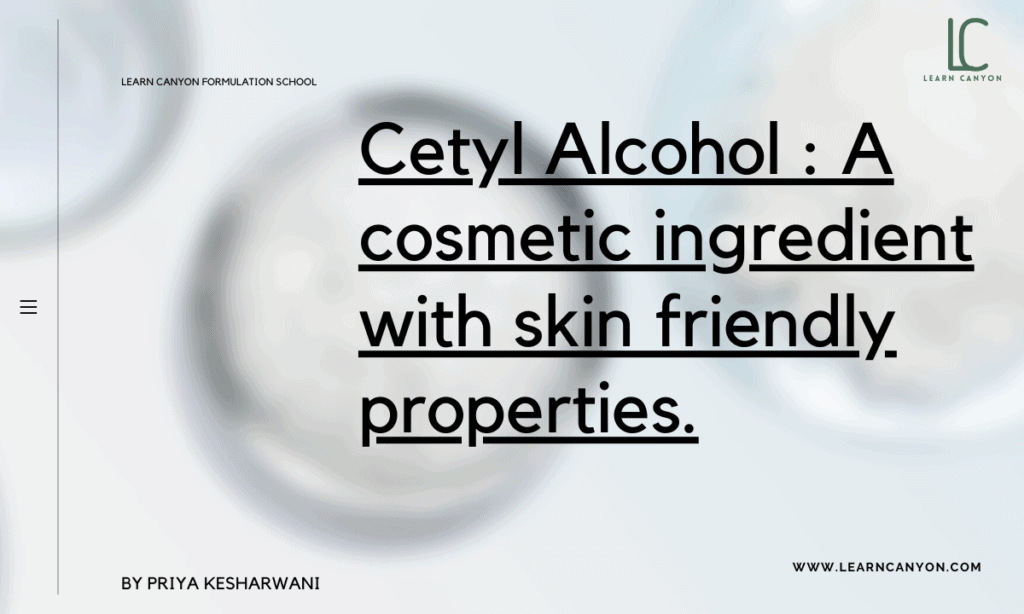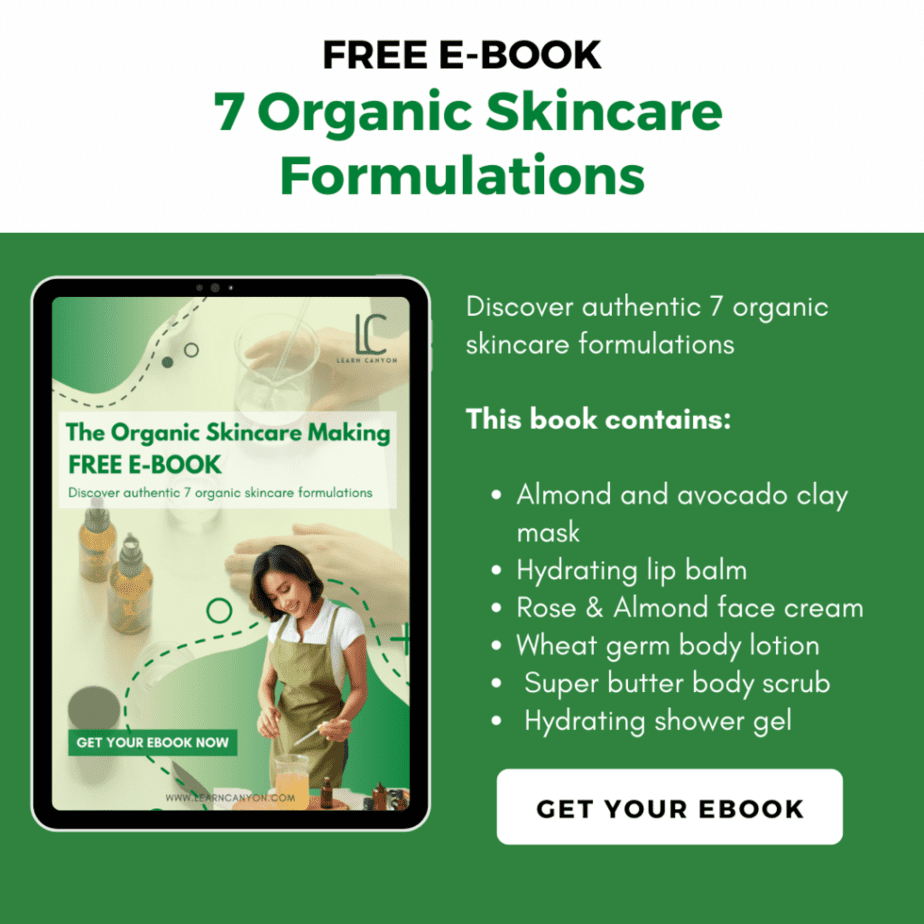
Neroli (Citrus aurantium amara) flower essential oil

Neroli - Flower Essential Oil
Did you know that the essence of the bitter orange blossom is known as Neroli in Italian? The scent of flowers is one of the best ways to lift your spirits throughout the winter.
The flowery scents scream spring and summer, and they can make even the coldest days feel warmer. The neroli blossom, which is the flower of an orange tree, is one of our favourite flowers.
What is Neroli flower essential oil?
Who’d have guessed that this glitzy and mysterious ingredient comes from the humble orange? The bitter orange flower, a near relative of the common navel orange, is known as neroli.
Bitter oranges, unlike navel oranges, are exactly that bitter. Neroli Oil is produced from the blooms of the Citrus aurantium, a bitter orange tree, and it smells like orange blossoms when inhaled. It has a citrus aroma and originates from a flower, so it’s a good choice.
| What is it? | Neroli Oil is made from the blossom of the bitter orange tree, which is steam distilled (Citrus aurantium). |
|---|---|
| INCI | Citrus aurantium flower oil |
| Appearance | A pale yellow to amber liquid. |
| Texture | Fluid liquid |
| Recommended Usage | 1.0-100.0% |
| Solubility | Water soluble |
| Melting point | NA |
| Boiling point | 224-225 °C at 745 mmHg |
| pH | NA |
| Aroma | A light, sweet-floral scent with a citrus undertone. |
| Why do we include it in formulations? | When it comes to skin tightening, neroli oil is the best. |
| How to work with it? | Include during the formulation's cool down phase, and avoid heating if at all possible. |
| Applications | It's regenerative, antibacterial, anti-inflammatory, and antiseptic, and it's good for acne, oily skin, and dry skin. |
| Absorption rate | Slow |
| Strength | It can be used to treat pimples and acne, as well as to minimise the redness that comes with outbreaks. |
| Weaknesses | Irritation and burning: Before applying oils to the skin, always dilute them with a carrier oil. |
| Substitution | Orange and bergamot |
| How to store it? | Stored in a cool, dark and dry place. |
| Shelf life | Neroli oil has a three-year shelf life. |
| Type of ingredient | Essential oil |
|---|---|
| Main benefits | Antibacterial, anti-inflammatory, and antiseptic, renewing, regenerative. |
| Who should use it | Acne-prone and oily skin, as well as dry skin, will benefit from this oil. |
| How often can you use it? | Neroli oil, in general, maintains the health of your skin and provides you with soft, baby-like skin when used regularly. |
| Works well with | Work well with essential oil and oil base products |
| Doesn't work with | Avoid using neroli oil if you are allergic to citrus. |
| How to use | When the formulation is cooling down, this ingredient is added. |
Mechanisms of action
Neroli oil, according to several experts, is the most effective for tightening skin. This is due to the presence of citral, a molecule that has been shown to help rejuvenate skin cells. Furthermore, neroli oil improves skin resiliency, making it an excellent anti-aging ingredient.
Benefits of Neroli flower essential oil
- Neroli Essential Oil is a hydration powerhouse, capable of softening, replenishing, and locking in moisture. This Bitter Orange Oil, when used topically, creates a protective barrier for your skin, ensuring that it stays beautiful and dewy all day.
- Neroli efficiently heals skin infections thanks to its antimicrobial properties. Neroli has been shown to suppress the growth of pathogens, preventing the spread of infections and safeguarding our skin in diseases such as acne, skin irritations, and wounds.
- Today’s lifestyles are bad for our skin and bodies. Our cells and organs are vulnerable to free radical damage. Neroli contains antioxidant qualities, just like other essential oils. Through the skin, these oils get into the bloodstream. They then assist the body in combating free radicals and lowering oxidative stress.
- Natural deodorant: Neroli oil in a diluted form can be used as a deodorant, room freshener, or to eliminate the musty odour in your closet.
- Neroli oil encourages the regeneration of new cells while revitalising existing skin cells, which helps to heal scars and keep skin looking young. A cytophylactic process is what this is called. Neroli has the ability to heal scars as a result of this feature. The constant generation of new cells slows the ageing process and keeps the skin looking young.
- Neroli is a moisturising flower. Regular skin care maintains the skin nourished and smooth, as well as giving it a healthy sheen.
- In the perfume and fragrance industry, neroli oil is commonly used. Eau de Cologne is a well-known perfume from Cologne.
Side effects of Neroli flower essential oil
Always conduct a patch test to ensure that it does not bother your skin, and dilute it with a carrier oil before applying to your skin. If you have a citrus allergy, avoid using neroli and make sure you follow the manufacturer’s instructions on how to use it.
Citrus oils, such as neroli oil, have been proven to make skin more sensitive to the sun. Neroli oil should never be used right before going out in the sun, and sunscreen should always be used to avoid sunburn.
How to use it in formulation?
Mixing neroli essential oil with a carrier oil is an easy way to utilise it on the skin. Good carrier oils include coconut oil, almond oil, and olive oil. They should, however, be chosen with your skin type in mind.
As needed, add a few drops of neroli essential oil to the carrier oil and gently dab it on the skin. By adding a few drops of neroli essential oil to your daily face cream or lotion, you may make it a part of your skincare routine. You may also add a few drops of essential oil to it and use it as an exfoliant if you wish.
Works Well With Other Ingredients
Neroli can be mixed with other essential oils and utilised in beauty products, making it a fantastic product. Chamomile, eucalyptus, cedarwood, and bergamot oils pair well with neroli oil.
It’s frequently used with essential oils like basil, tangerine, and lime. Because of its relaxing and aphrodisiac properties, neroli is also known as the ‘oil of romance.’ It has traditionally been used in weddings.





